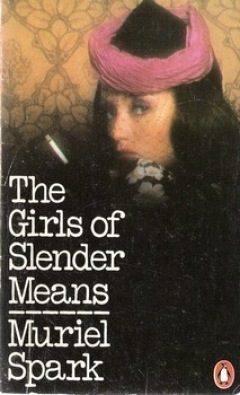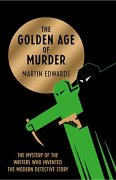Some notes about the first six fiction reads for #20BooksofSummer – the two non-fiction books I read as part of this challenge can be found over here.
Things We Didn’t See Coming by Steven Amsterdam
Opening on the eve of the millennium, when the world as we know it is still recognisable, we meet the nine-year old narrator as he flees the city with his parents, just ahead of a Y2K breakdown
The novel is made up of a number of connected stories that take us through the life of this boy as he grows up and makes his way in a world that has changed in unspecified ways. By that I mean that although at each stage we are clear what particular issue he is dealing with, we don’t actually know what happened to leave the world in this state, which is a shame for me because I love all that detailed disaster stuff, but to be fair isn’t an issue for the story which I found very readable. Apparently it’s now taught in Australian schools which I found fascinating.
It’s always interesting to see references to Y2K in works of fiction; I spent a lot of my time at work leading up to the end of 1999 coming up with contingency plans should everything go pear-shaped, and we sometimes forget how much we worried given that everything turned out Ok in the end.
Anyway, this is worth reading if like me you can’t resist the post-apocalyptic thing.
The Word is Murder by Anthony Horowitz
The online blurb for this is as shouty as you can get without being all caps:
the best-selling mystery from the author of the Magpie Murders, you’ve never read a crime novel quite like this
Oh wait, it does get the all caps treatment int he very next paragraph:
SHE PLANNED HER OWN FUNERAL. BUT DID SHE ARRANGE HER OWN MURDER?
That, ladies and gentlemen, is the wrong question. The right question is did she know she was going to die imminently. This is a very good whodunnit with the quirk that the author is himself is a character in his own novel because he is writing a book about the lead detective, who is of course a maverick. Your feeling about this will depend on whether you like Mr Horowitz or not; I do, so all was fine. Some nice red herrings and a murderer and motive that I just didn’t see co,ing, so all very satisfying. Hoping this will become a series.
The Summer Children by Dot Hutchinson
Book 3 in the Collector Trilogy (although I think there might be a fourth on the way next year)
When Agent Mercedes Ramirez finds an abused young boy on her porch, covered in blood and clutching a teddy bear, she has no idea that this is just the beginning.
I loved the first two novels in the Collector trilogy (which I read last year but didn’t review because I wasn’t really reviewing anything for a significant period), partly because it wasn’t a standard trilogy – although many of the participants are the same the cases covered were entirely different, though just as creepy as each other. I devoured them all 🙂
The Long Way to a Small Angry Planet by Becky Chambers
Book 1 in the Wayfarer series, and shortlisted for the Bailey’s Women’s Prize for Fiction
When Rosemary Harper joins the crew of the Wayfarer, she isn’t expecting much. The ship, which has seen better days, offers her everything she could possibly want.
Are you waiting for the but?
..She gets more than she bargained for.
Ta dah!
Such a good story, wonderful characters, believable world building and so well written. I like the mix of races, and spent a lot of time trying to imagine what some of the alien species actually looked like (and failed because my imagination is rubbish). A book with real heart and I am looking forward to reading the next two (already loaded on my kindle). Sci-fi at its best.
The Seven Deaths of Evelyn Hardcastle by Stuart Turton
A brilliant original high concept murder mystery from a fantastic new talent
and
Gosford Park meets Inception by way of Agatha Christie and Black Mirror
That’s ….. quite a pitch. I really liked this book, a mixture of sci-fi and crime novel with a clever concept and an intriguing mystery at the centre. Som of the characters are really horrible but they kind of have to be, and the protagonist has an agenda of his own which only becomes clear at the end and was somewhat of a surprise. One of those stories where it pays to just go along for the ride and not try to think about it too hard. Great fun.
I already know that I won’t read all of the books on my list, but I’m OK with that 🙂
The eagle-eyed amongst you will have noticed that I have only covered five books above. That’s because although I also read You Were Never Really Here, I want to watch the film version and do a combined review. (Spoiler alert – the novella is awesome).
So to make it up to you here are my thoughts on a book that I had completely forgotten about, which os surprising because I loved it.
Heartsick by Chelsea Cain
A femme fatale with an appetite for cruelty that will be difficult to surpass.
Our hero is in law enforcement and gets attacked as he faces down the serial killer, but she lets him live, though mutilated in body and messed up in mind. Our heroine is a young reporter brought in to cover a serial killer case. Our antagonist is a beautiful, intelligent and utterly cruel serial killer who manipulates everyone around her.
I liked her. Apart from the excessively gruesome violence of course.
So that’s my round-up. I hope to do individual reviews for the remaining books.

 Have been thinking about my blog a great deal over the past wee while and have decided to start afresh.
Have been thinking about my blog a great deal over the past wee while and have decided to start afresh.














 So as my reading is going pretty well this year I decided it was time that I took part in a challenge, and thought that this one (hosted by Cathy over at
So as my reading is going pretty well this year I decided it was time that I took part in a challenge, and thought that this one (hosted by Cathy over at 















